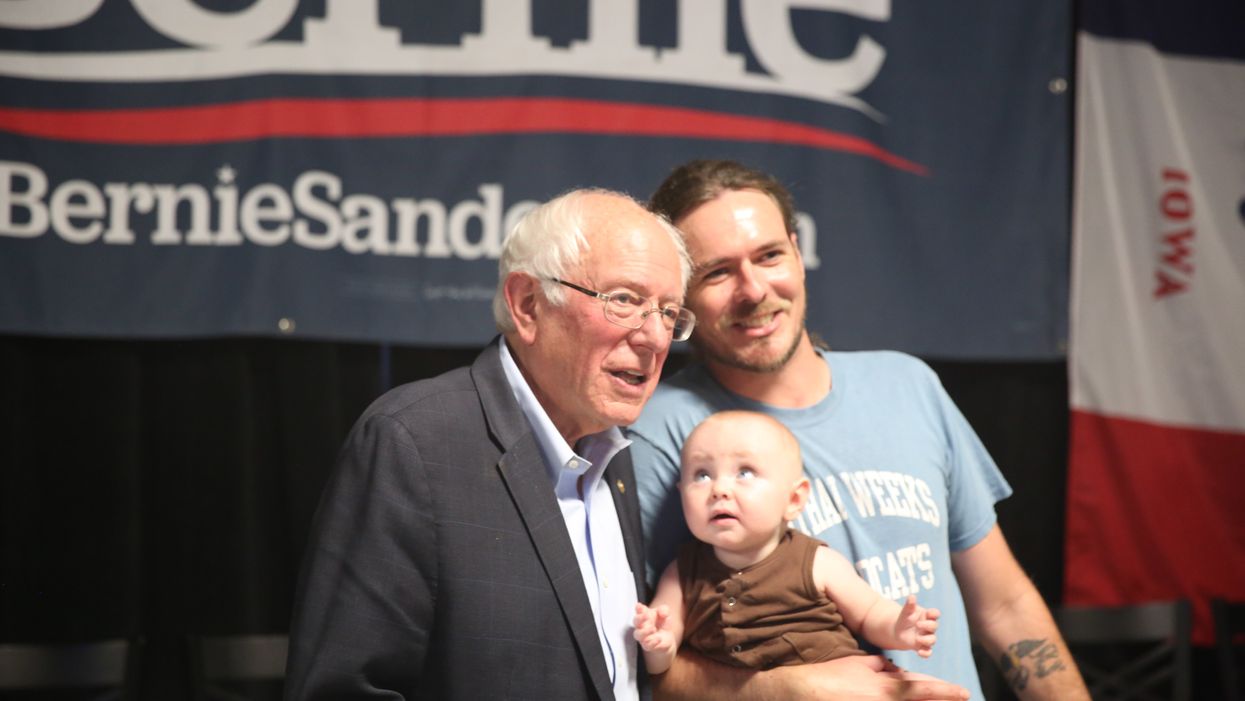
Accidental Renaissance at a disco hall in Des Moines, and proof that Bernie is popular with the youth. (Photo by Sean Ryan)

On a Saturday afternoon, the dance hall turned serious and wild for "Unidos Con Bernie."
On an August afternoon at El Malecón Events Center, we waited for the democratic socialist. He had the wild white hair like a monk and the thick glasses and the booming voice full of hacks and no niceties.
The Des Moines, Iowa, venue had been redecorated since we visited a few nights before when we chatted with Julian Castro. It didn't even feel like the same place. No bouncy castle this time.
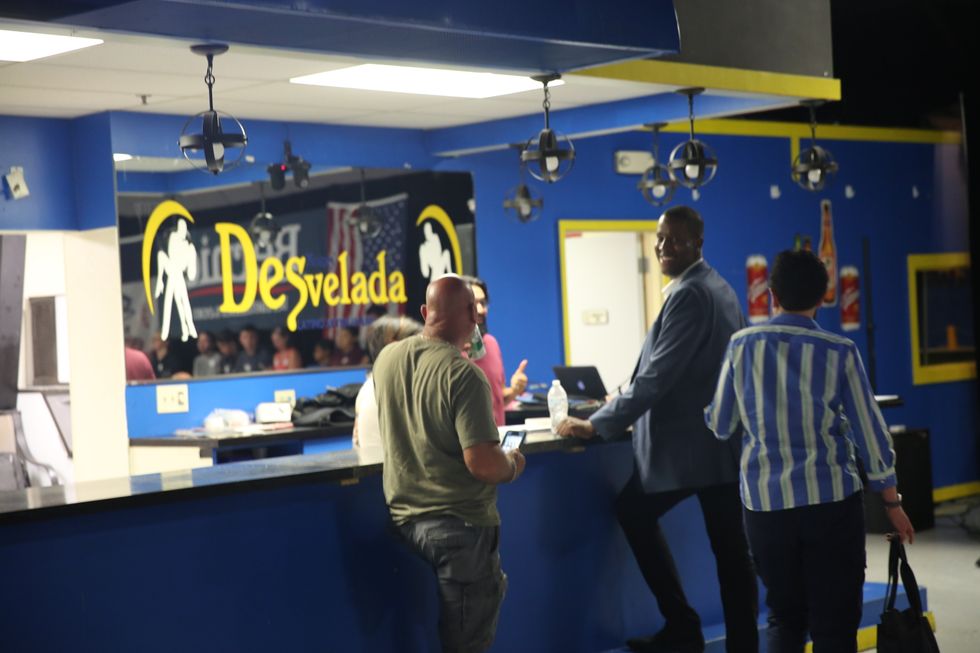
A black curtain blocked the stage, giving the room much-needed depth.
Behind the podium, two rows of mostly young people, all holding Bernie signs, all so diverse and picturesque and strategic.
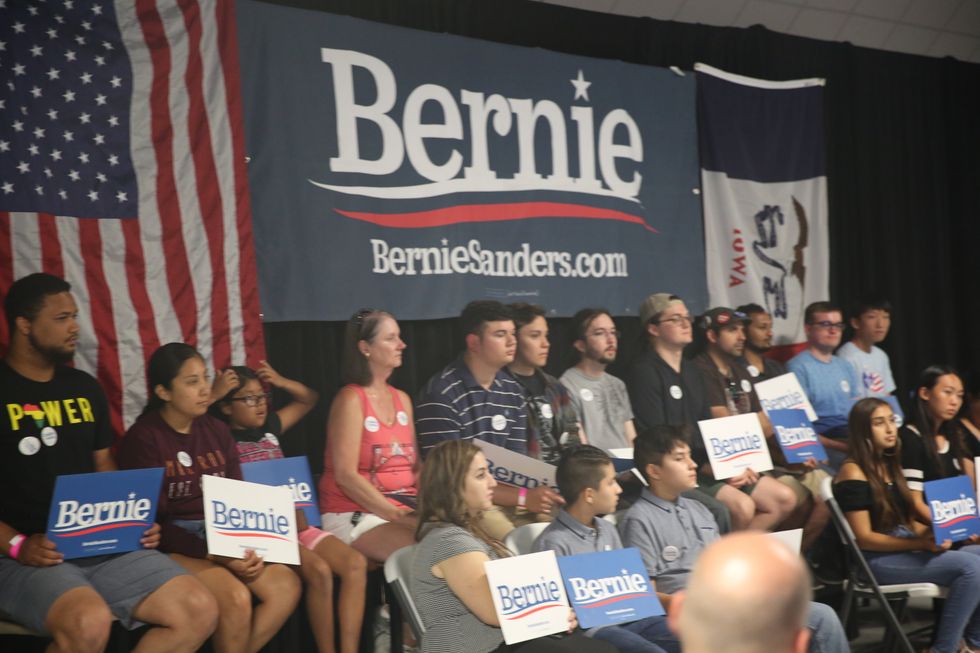
Lots of empty seats. Poor showing of Bernie fans for a Saturday afternoon. At one point, someone from Bernie's staff offered us seats in the audience, as if eager to fill up those empty seats.
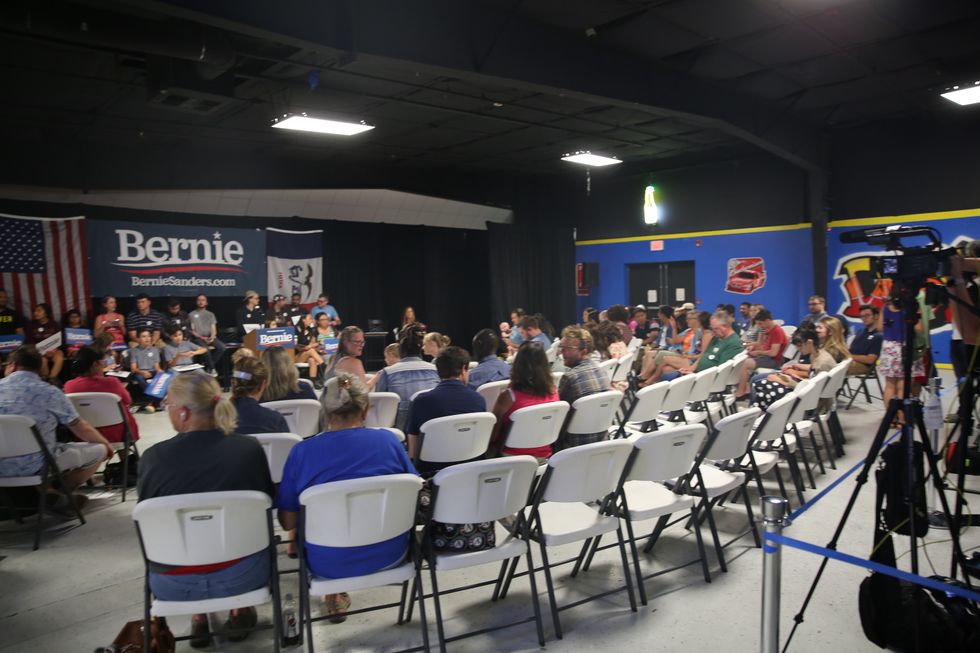
There were about 75 people in the dance hall, a place built for reunions and weddings and all those other festivities. But for a few hours on Saturday, Aug. 10, 2019, it turned serious and wild for "Unidos Con Bernie."
People had been murmuring about Sanders' speech from the night before at Wing Ding. By all appearances, he had developed a raving lust to overthrow President Trump. He had even promised, with his wife just out of view, that, if elected, he'd end white nationalism in America. For good.
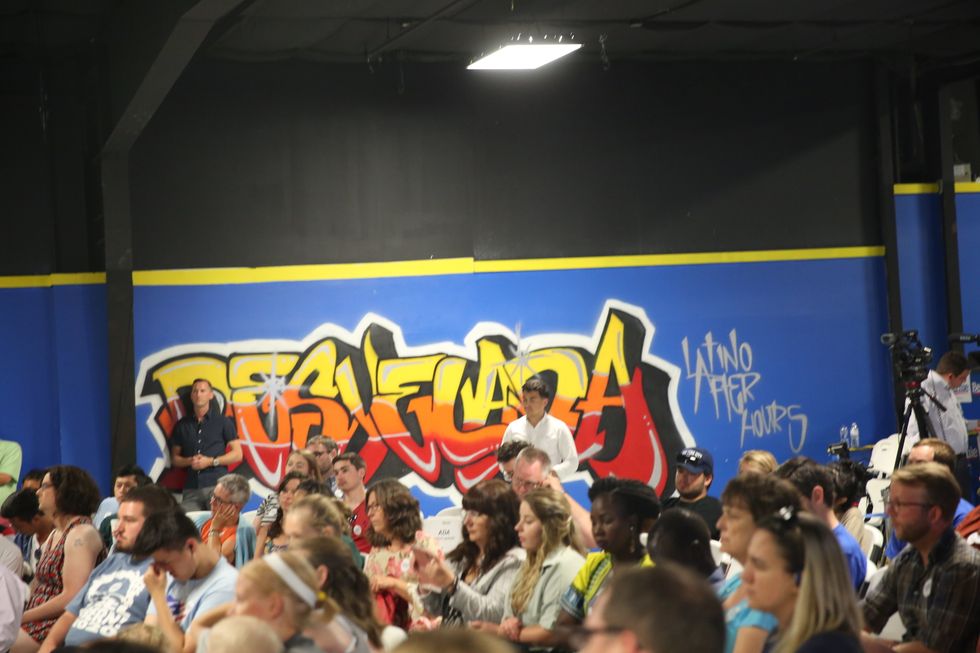
El Malecón lacked its previous air of celebration. It had undertaken a brooding yet defiant spirit. Media were sparse. Four cameras faced the podium. Three photographers, one of whom had been at nearly all the same events as us. A few of the staffers frowned at an empty row of chairs, because there weren't that many chairs to begin with.
At the entrance, Bernie's staff handed out headsets that translated English to Spanish or Spanish to English, depending on who the speaker was. The translators stood behind the bar, 20 feet from the podium, and spoke into a lip-ribbon microphone.
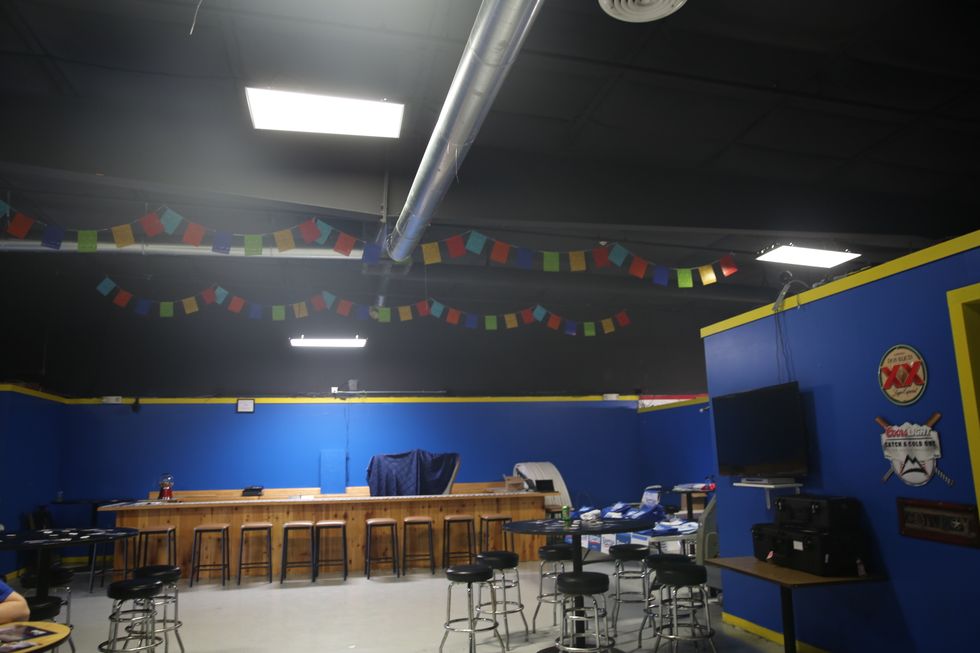
Bernie's staff was probably the coolest, by far. As in, they looked cool and acted stylishly. Jeans. Sandals. Careworn blazers. Tattoos. One lad had a black Levi's shirt with lush crimson roses even though he wasn't a cowboy or a ranch hand. Mustaches. Quirky hats. A plain green sundress. Some of them wore glasses, big clunking frames.
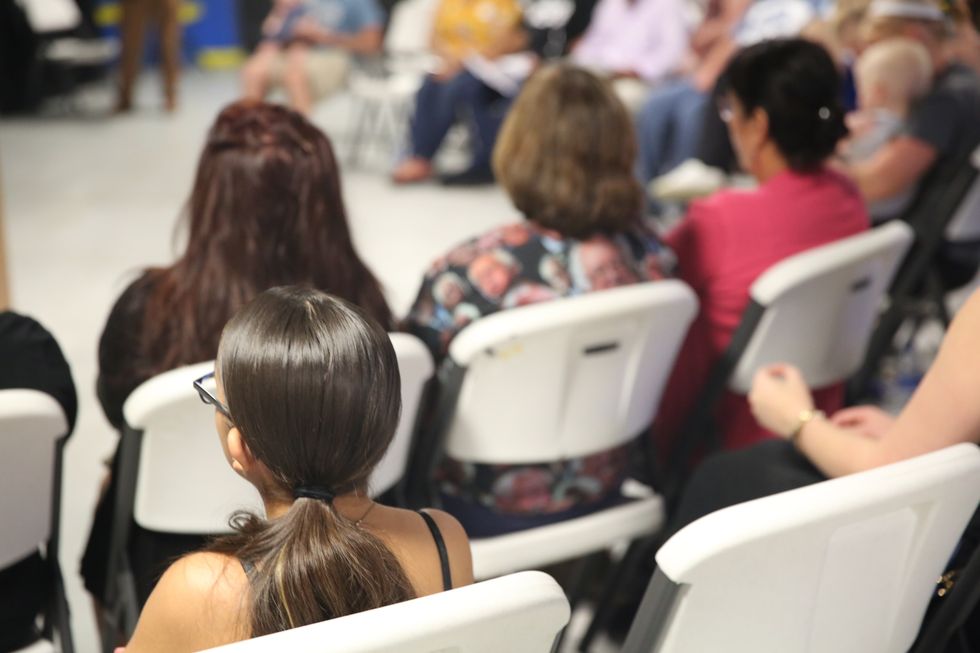
The outfits were distinctly Bernie. As Bernie as the tie-dyed "BERNIE" shirts for sale outside the club. Or later, at the Hilton, like a Grateful Dead cassette stand.
Immigration was the theme, and everyone in the audience bore some proof of a journey. Because America offers life, freedom, and hope.
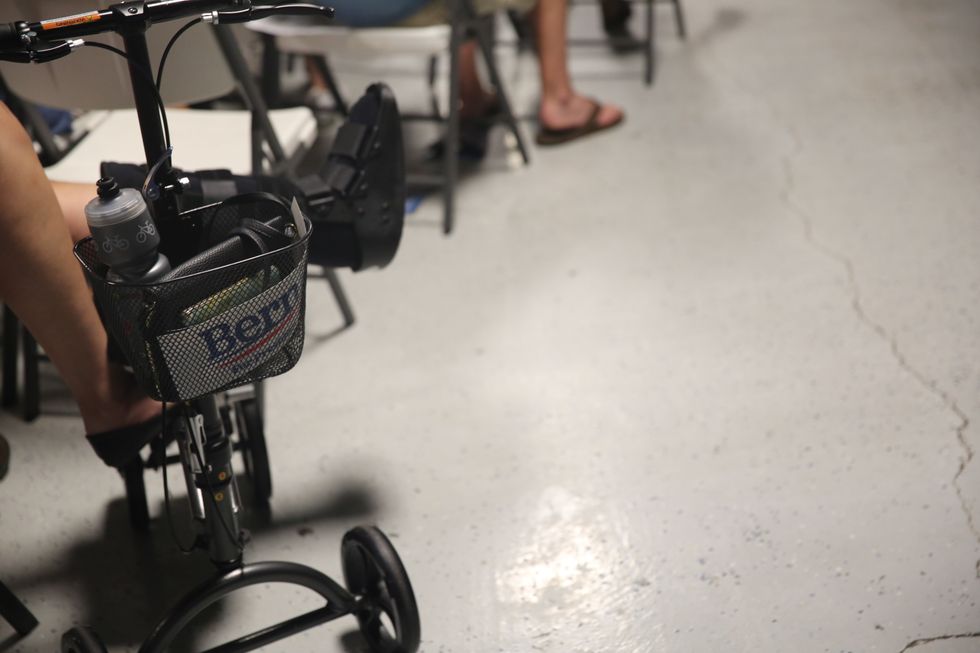
Sanders' own father emigrated from Poland to America at 17, a high school dropout who could barely speak English. As a Jew, he'd faced religious persecution.
Within one generation, Bernie Sanders' father contributed to the highest stratum of American society. In one generation, near hopelessness had transformed into Democracy, his son a congressman with a serious chance at the presidency.
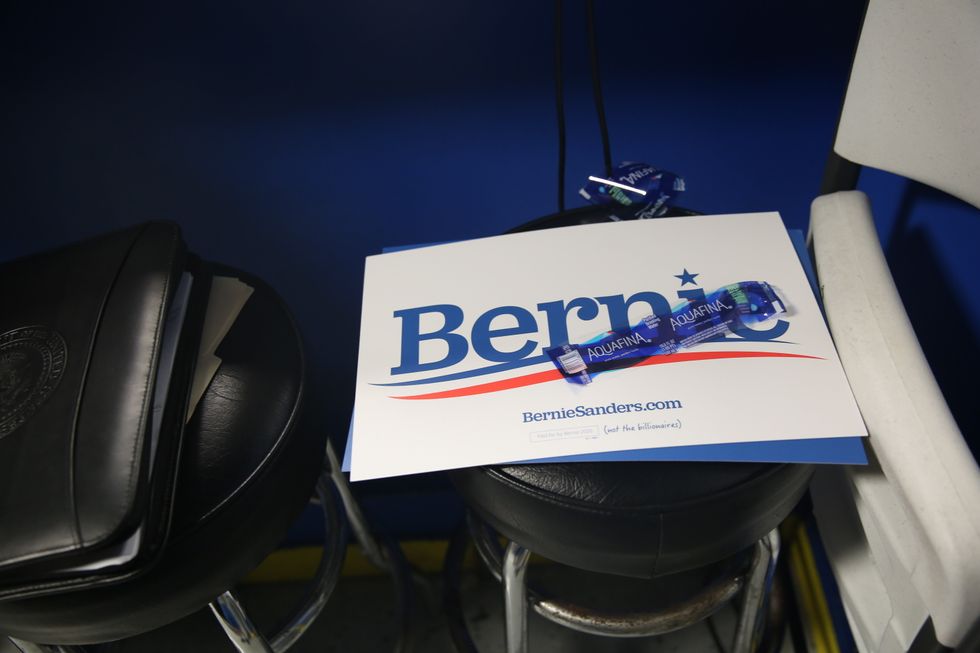
That's the beauty of America. Come here broken and empty and gutted and voiceless. And, within your lifetime, you can mend yourself then become a pillar of society. Then, your son can become the President of the United States of America!
Four people gave speeches before Sanders. They took their time, excited and nervous. They putzed. Because how often do you get to introduce a presidential front-runner?
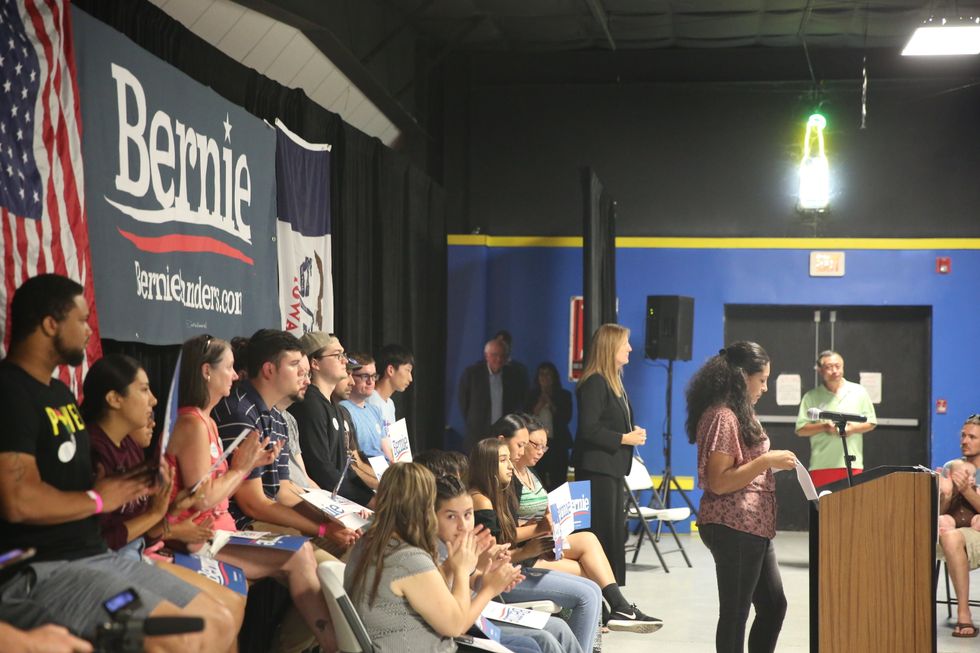
All the native English speakers jammed their earpieces when the woman with the kind and dark energy took the stage.
She mumbled in Spanish and did not look up and said that, when her parents died, she couldn't go home for the funeral. She fought back tears. She swallowed hard to shock herself calm. And the room engulfed each silence between every word.
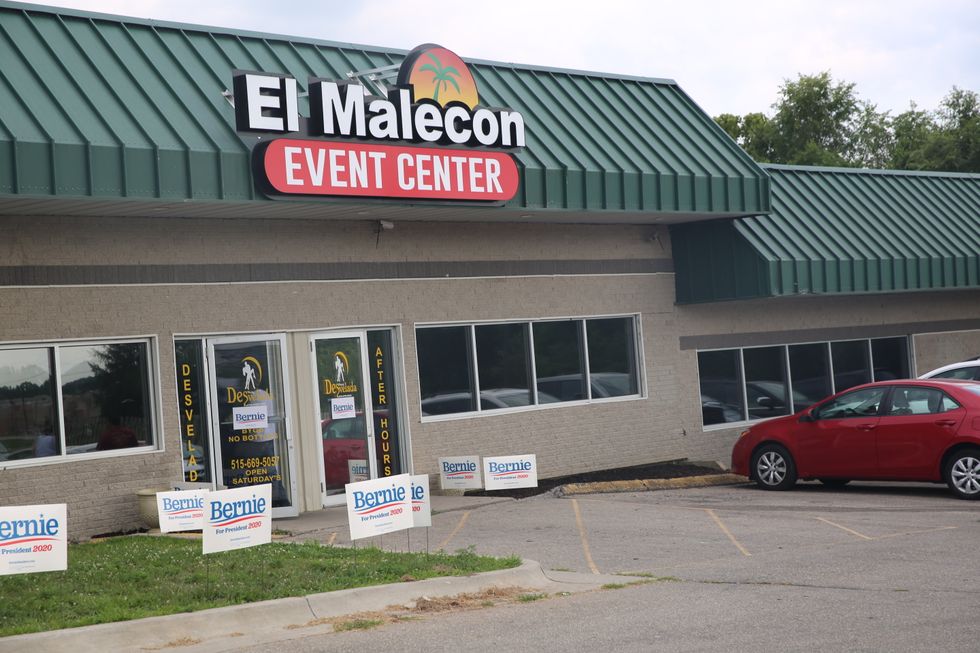
It felt more like a therapy session than a political rally. A grueling therapy session at that. Was that what drew people to Bernie Sanders, that deep anguish? That brisk hope? Or, rather, the cessation of it, through Sanders? And, of course, the resultant freedom? Was it what gave Sanders a saintlike ability to lead people into the realm of the confessional? Did he have enough strength to lead a revolution?
While other front-runners hocked out money for appearances, like the studio lights, Sanders spent money on translators and ear-pieces. The impression I got was that he would gladly speak anywhere. To anyone. He had the transitory energy you can capture in the writings of Gandhi.
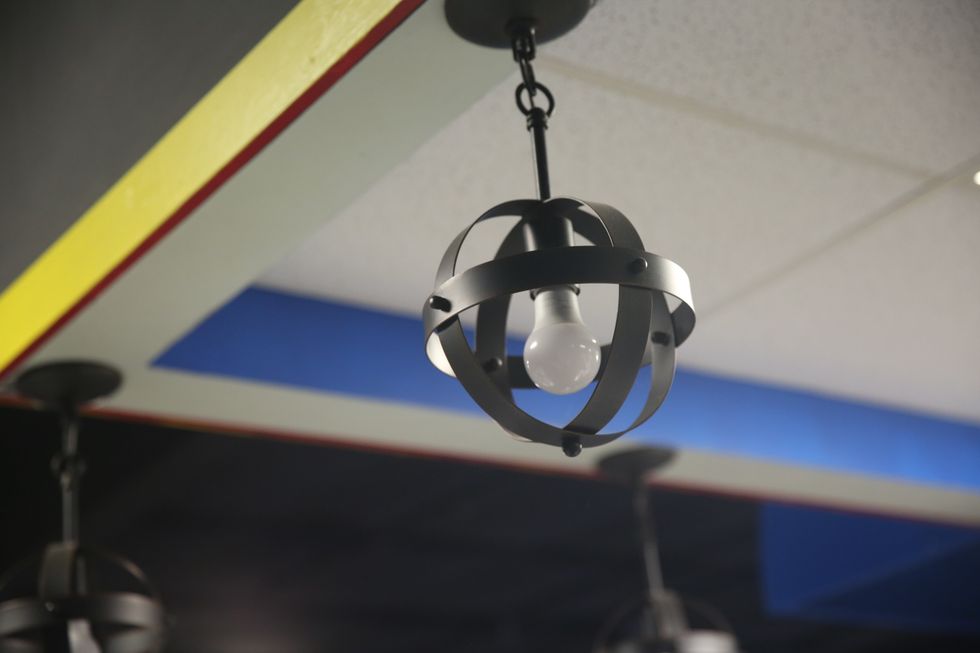
I'm not saying he's right or wrong — I will never make that claim, about any of the candidates, because that's not the point of this, not the point of journalism, amen — what I'm saying is he has the brutal energy of someone who can take the subway after a soiree or rant about life by a tractor or chuck it up with Sarah Silverman, surrounded wherever he goes.
Without the slightest fanfare, Sanders emerged from behind the black curtain. The woman at the podium gasped a little. The room suctioned forward when he entered. In part because he was so nonchalant. And, again. That magnetism to a room when a famous or powerful or charming person enters. Not many people have it. Not many can keep it. Even fewer know how to brace it, to cull it on demand. But several of the candidates did. One or two even had something greater.
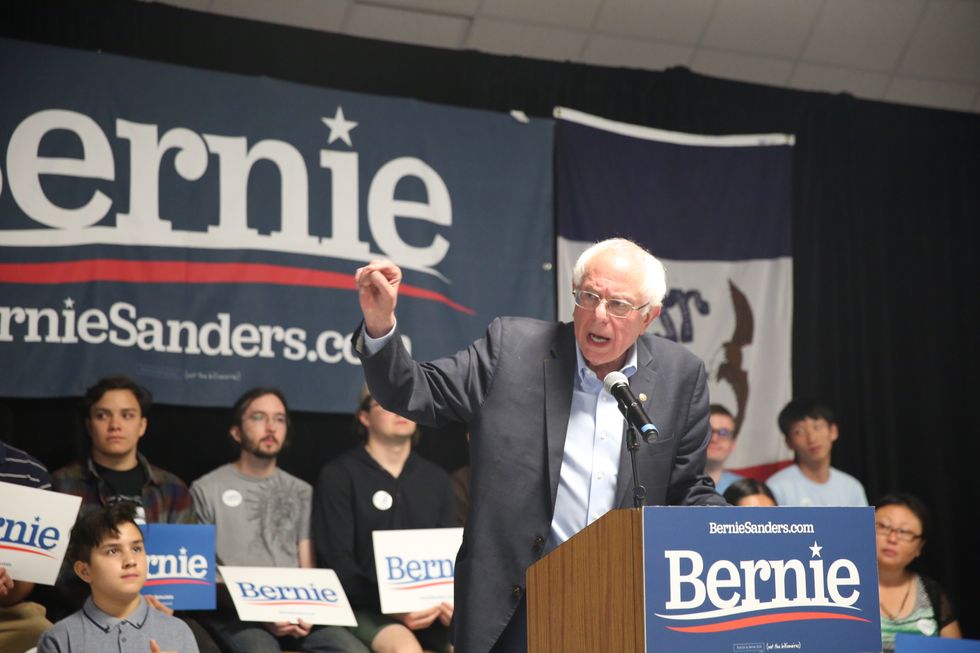
I'll only say that Bernie had it with a bohemian fervor, like he was a monk stranded in a big city that he slowly brings to God.
"We have a President who, for the first time in my lifetime, who is a President who is a racist," he shouted. "Who is a xenophobe and anti-immigrant. Who is a sexist. Who is a religious bigot. And who, is a homophobe. And, what is very disappointing is that, when we have a President, we do not necessarily expect to agree with him, or her, on every issue. But we do believe that one of the obligations is to bring people to-geth-ah. As Americans."
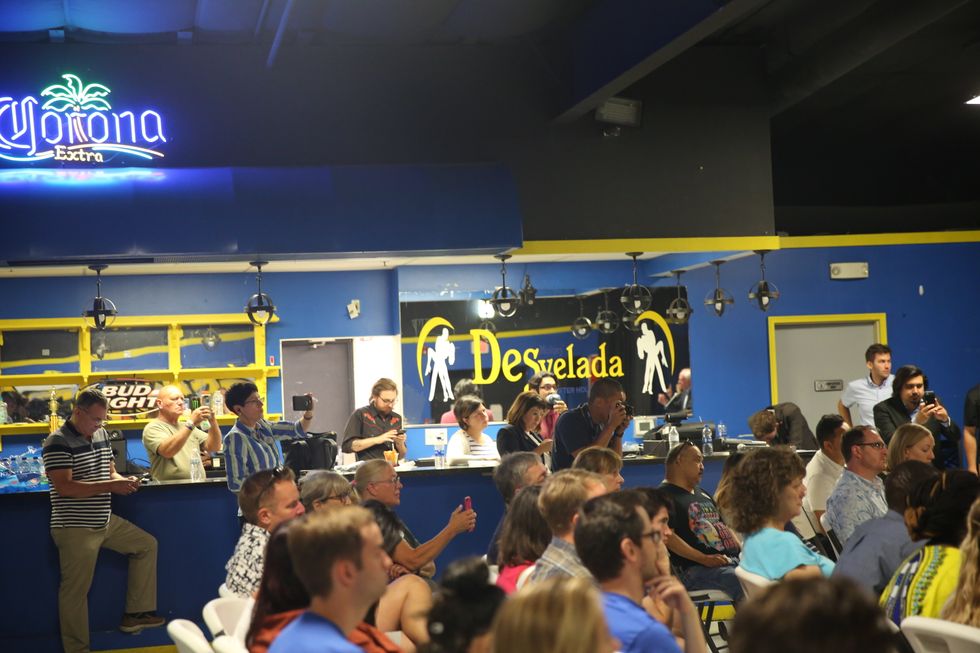
After listening silently for several minutes, the audience clapped. Their sweet response felt cultish. But, then again, what doesn't feel cultish these days? So this was cultish like memes are cultish, in a striving-to-understand kind of way.
"The essence of our campaign is in fact to bring people together," he said. "Whether they're black, or white, or latino, or Native American, or Asian American. We understand that we are Americans."
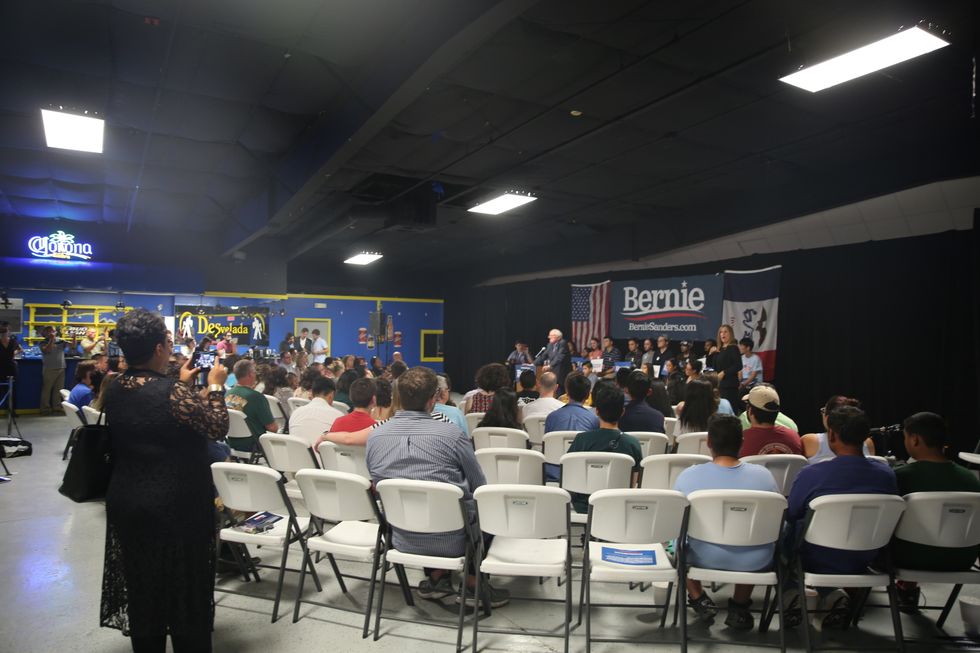
At times, this meant sharing a common humanity. Others, it had a slightly more disruptive feel. Which worked. Sometimes all we want is revolution. To be wild without recourse. To overthrow. To pass through the constraints of each day. To survive. The kind of rowdy stuff that makes for good poetry but destroys credit lines. Sanders radiated with this intensity, like a reclusive philosopher returning to society, from his cave to homes and beds and fences and maybe electricity.
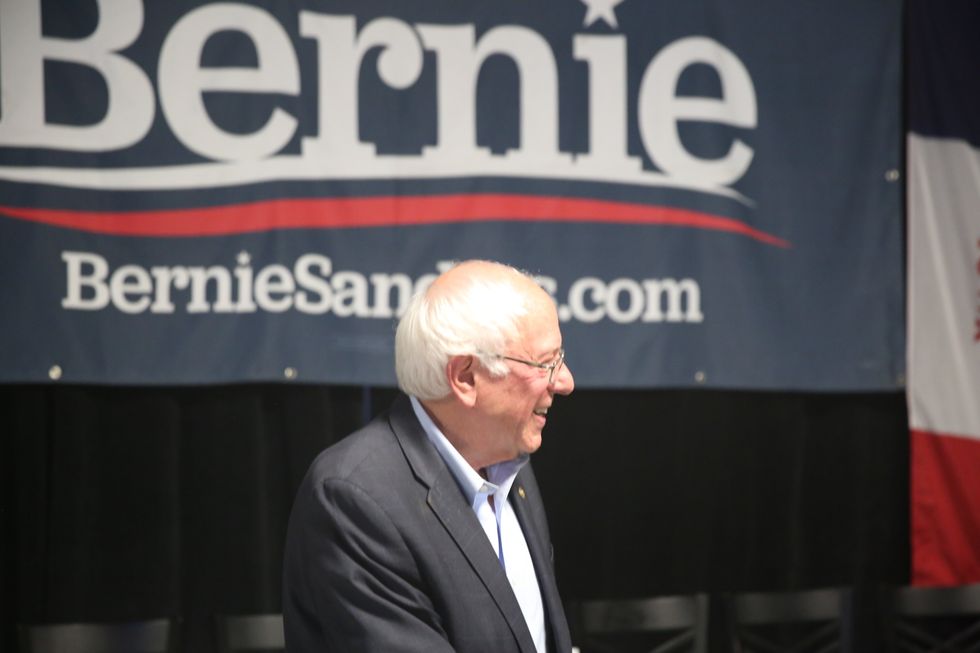
But, as he says, his revolution would involve health care and wages and tuition, not beheadings and purges and starvation.
Seeing the presidential candidates improvise was amazing. They did it constantly. They would turn any of their beliefs into a universal statement. And Sanders did this without trying. So he avoided doing the unbearably arrogant thing of pretending to speak like a native Guatemalan, and he looked at the group of people, and he mumbled in his cloudy accent:
"My Spanish — is not so good."
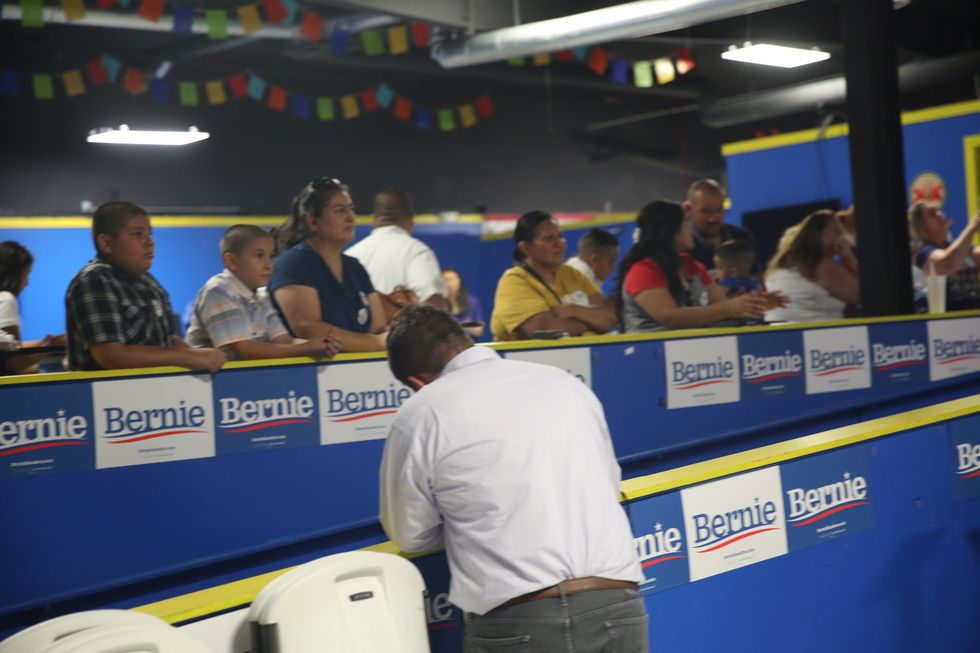
This is the same and the opposite of President Trump's Everyman way of speaking English like an American. Of speaking American.
Often, you know what Sanders will say next. You can feel it. And, anytime this happened, it brought comfort to the room.
Like, it surprised no one when he said that he would reinstate DACA on his first day in office. It still drew applause.
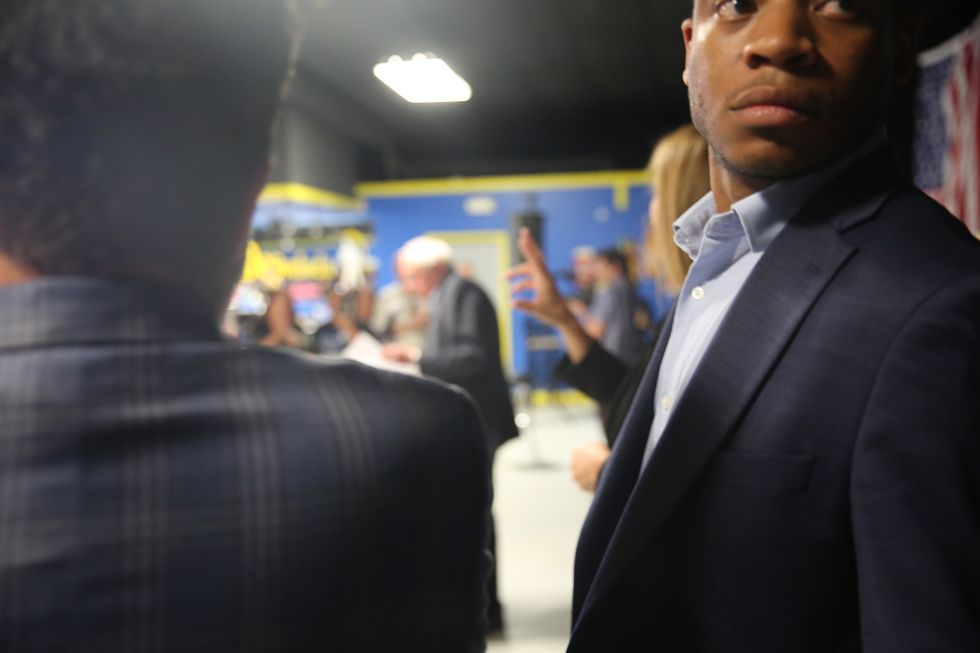
But other times, he expressed wild ideas with poetic clarity. And his conclusions arrived at unusual junctures. Not just in comparison to Republicans. To all of them. Bernie was the Tupac of the 2020 election. And, to him, President Trump was Suge Knight, the evil force behind it all.
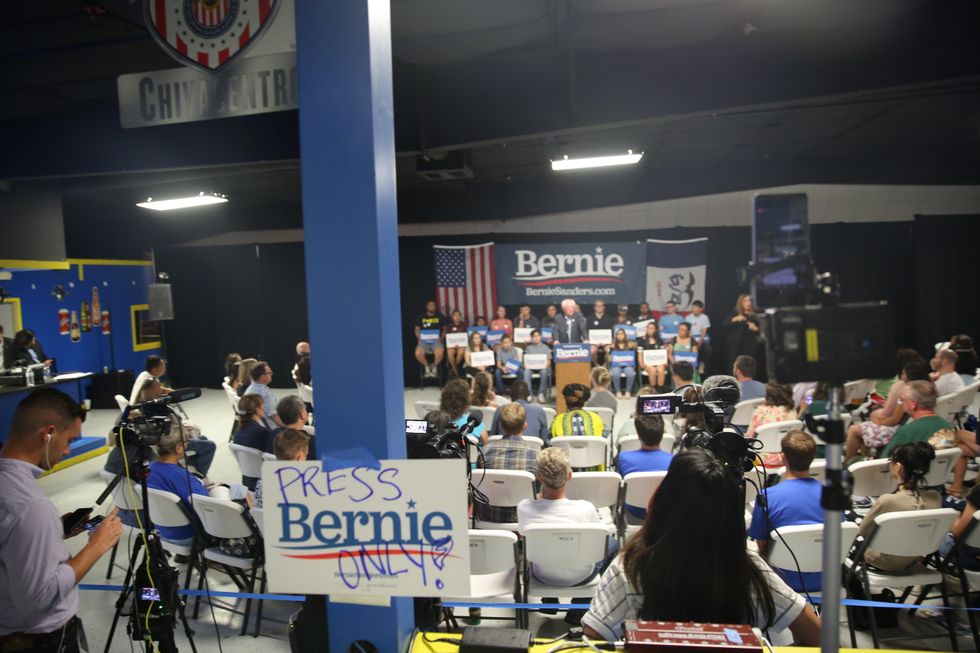
"Donald Trump is an idiot," he shouted.
Everybody loved that. Everybody clapped and whooped and some even whistled like they were outside and not in a linoleum-floor dance hall.
"Go get 'em, Bernie," someone in the back shouted.
This was the only Sanders appearance with no protesters.
"Let me say this about the border," he shouted. And everybody listened to every thunking syllable. He probably could have spoken without a mic. Booming voice. Loud and clear. Huddling into that heavy Vermont slug accent.
They'll say many many things about Bernie. One being, you never had to lean forward to hear him. In person, even more so. He's less frail. More dynamic.
Despite the shoddiness of the venue, there was a sign language interpreter. Most of the rallies had a designated interpreter.
"If you work 40 hours a week you shouldn't be living in poverty," he shouted, provoking chants and applause from the audience, as if he were talking about them. Maybe he was.
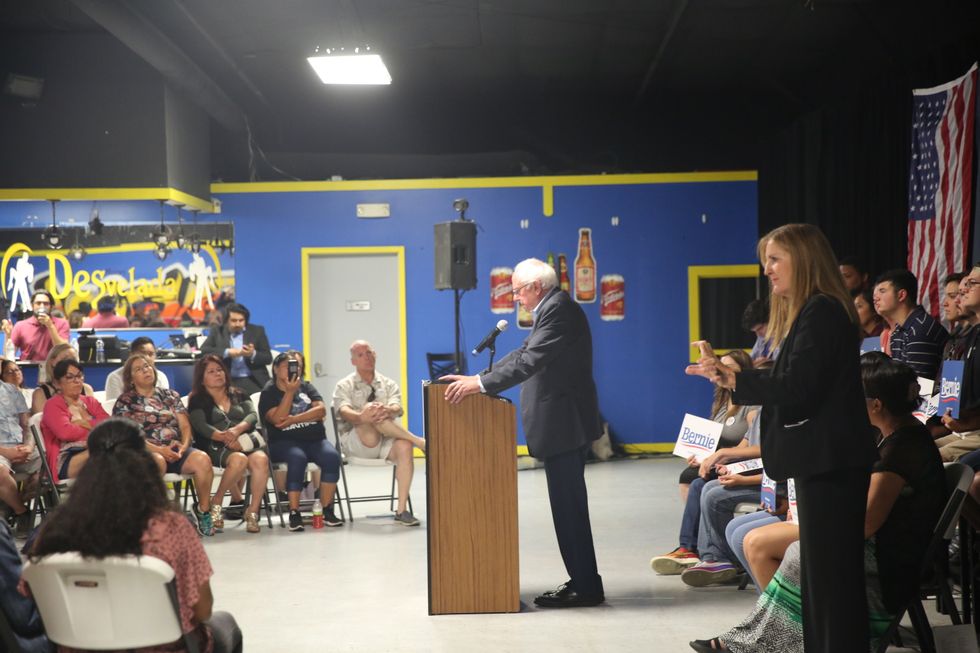
An anecdote about the people at an emergency food shelf blended into the livable wage of $15 an hour. He shifted into his spiel about tuition-free college and pointed at the audience, "You're not doing well," then at the kids behind him, "they are." He craned his head sideways and back. "Do your homework," he said.
Laughter.
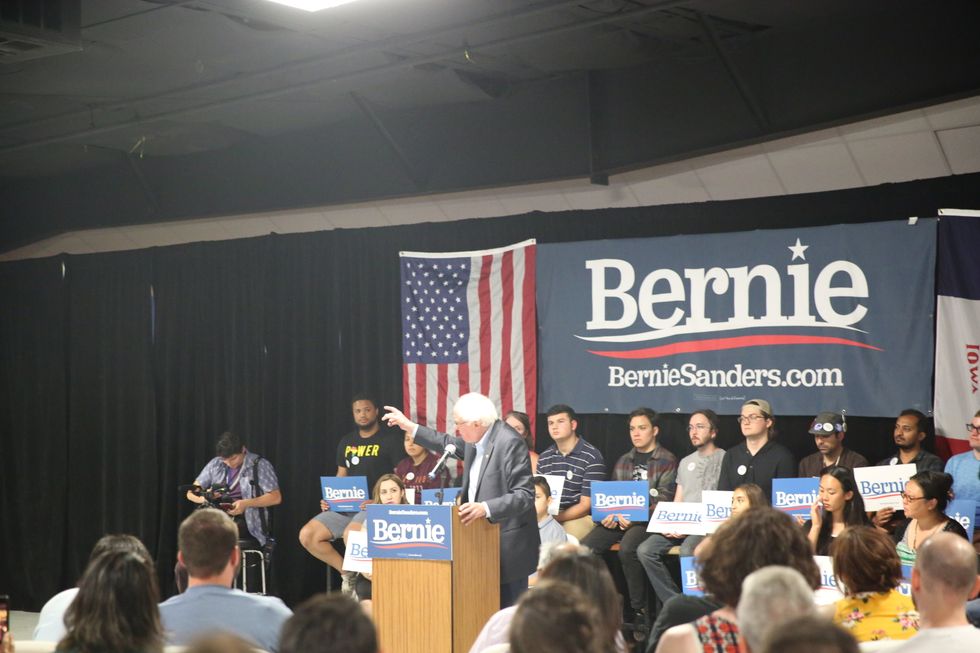
Half of the kids looked like they hadn't eaten in days. Maybe it was their unusual situation, a few feet from Bernie Sanders at a stucco community center.
Before the room could settle, Sanders wove through a plan for how to cancel debt.
Did he have a solution?
"Tax Wall Street," he shouted.
And he made it sound easy. "Uno dos trey," he said. "That's my Spanish for today."
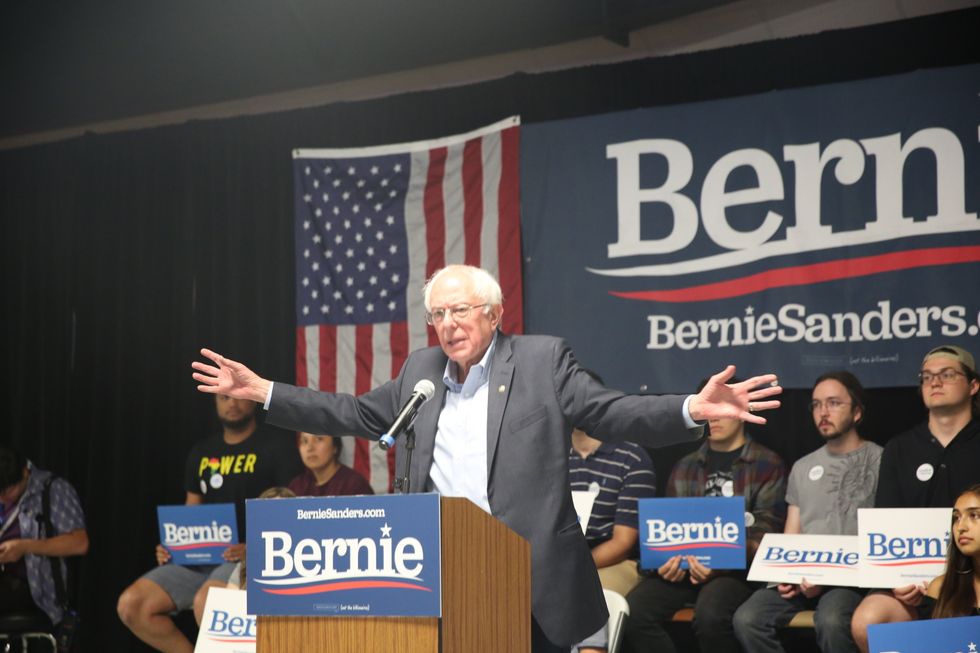
A serious man, he shoved through his speech like a tank hurtling into dense jungle. He avoided many of the typical politician gimmicks. Proof that he did not practice every expression in front of a mirror. That he did not hide his accent. That he did not preen his hair. That he did not smile for a precise amount of time, depending on the audience. That he did not pretend to laugh.
He laughed when humor overtook him. But it was genuine. With none of the throaty recoil you hear in forced laughter.
"I want everyone to take a deep breath," he said. And a palpable lightness spread through the room, because a deep breath can solve a lot of problems.
Then he roused some more.
"Health care is a human right," he shouted.
"A human privilege," he shouted. He told them that he lives 50 miles from the Canadian border in Burlington, Vermont, and health care works better up north.
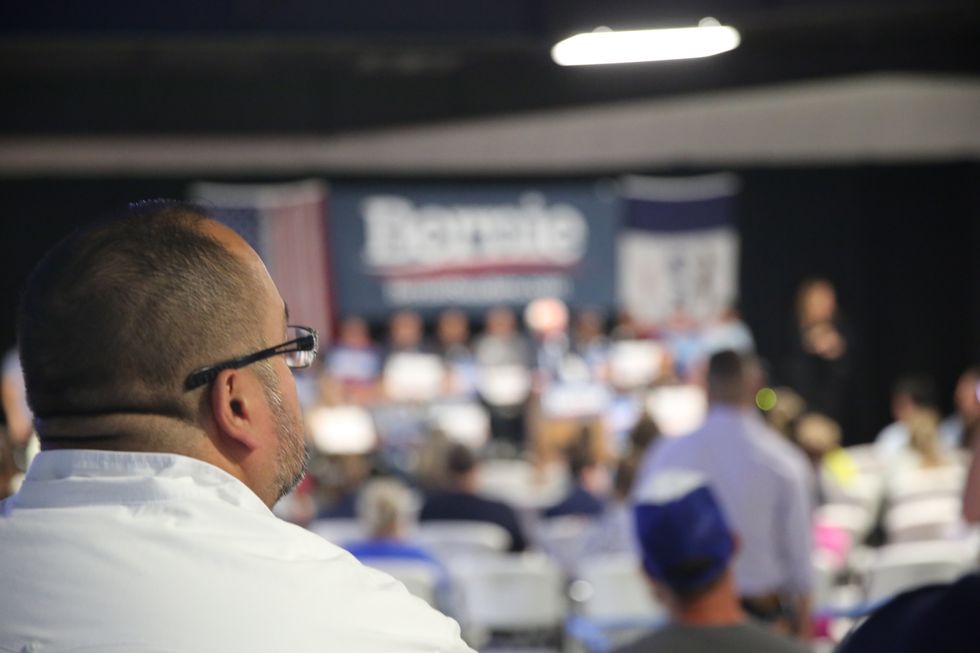
Each candidate had a bad word, and Sanders' was "corporate."
At every speech, he mentioned "corporate media" with the same distrust and unpleasantness that conservatives derive from the term "mainstream media." Another would be "fake news," as popularized by Sanders' sworn enemy. Either way it's the same media. Just different motivations that irk different people.
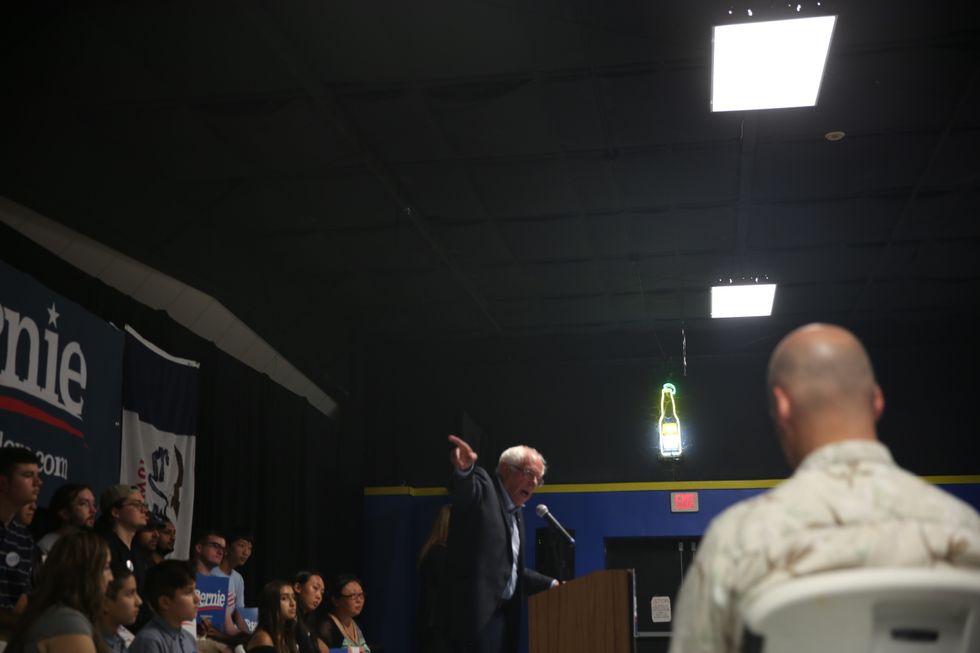
But the discrepancies varied. Meaning two opposing political movements disliked the same thing, but for opposite reasons.
It sounded odd, Sanders' accusation that the media were against him. The media love Bernie. I can confirm this both anecdotally and judiciously. Yes, OK, in 2016, the media appeared to have sided with Hillary Clinton. As a result, Sanders was publicly humiliated. Because Clinton took a mafioso approach to dealing with opponents, and Sanders was her only roadblock.
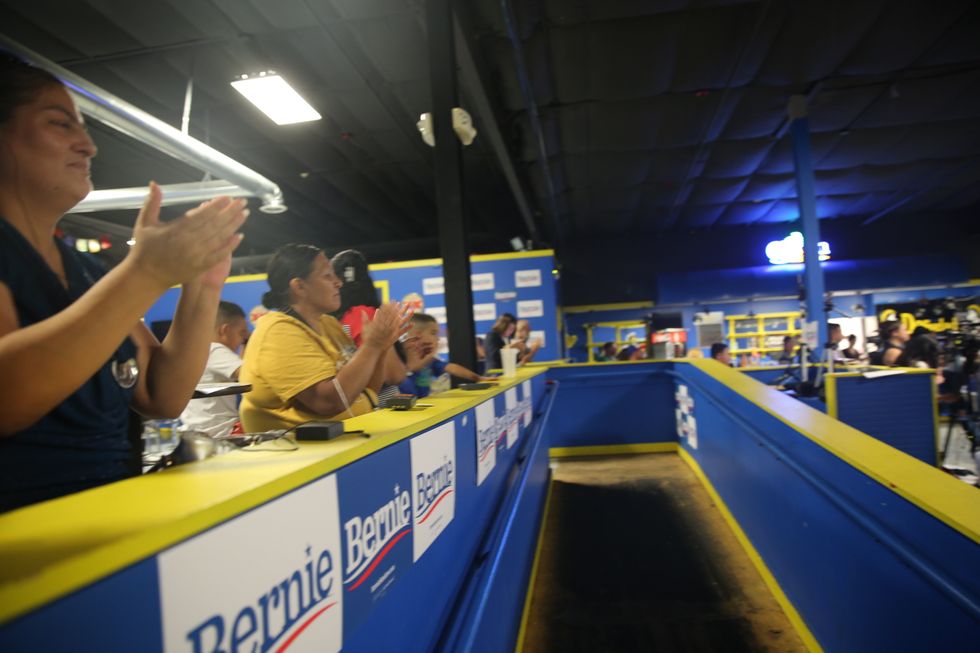
Imagine if a major political organization devoted part of each day to agitating your downfall. And then you fail. And who's fault is it?
Sanders wanted to know: Those negative ads targeting him, who paid for them?
Corporations, of course. Corporations that hated radicals like him. And really was he so radical? He listed off the possibilities: Big pharma, insurance companies, oil companies.
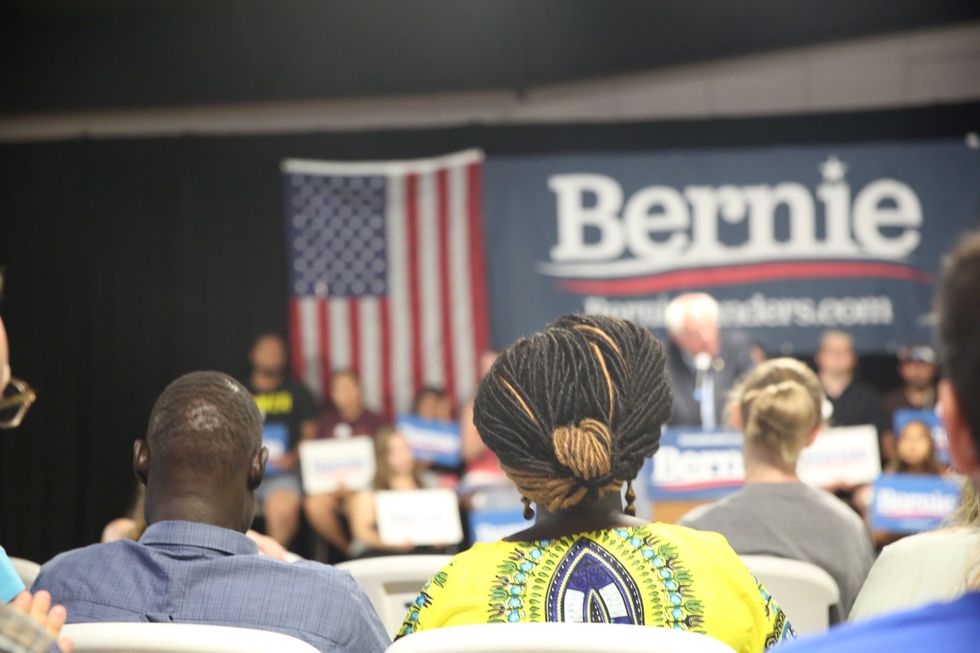
Because he had become a revolutionary, to them. To many.
He said it with certainty, although he often didn't have to say it at all. This spirit of rebellion had become his brand. He would lead the wild Americans into a utopia.
But just as quickly, he would attack. Trump, as always, was the target.
He called Trump the worst president in American history.
"The fates are Yuge," he shouted.
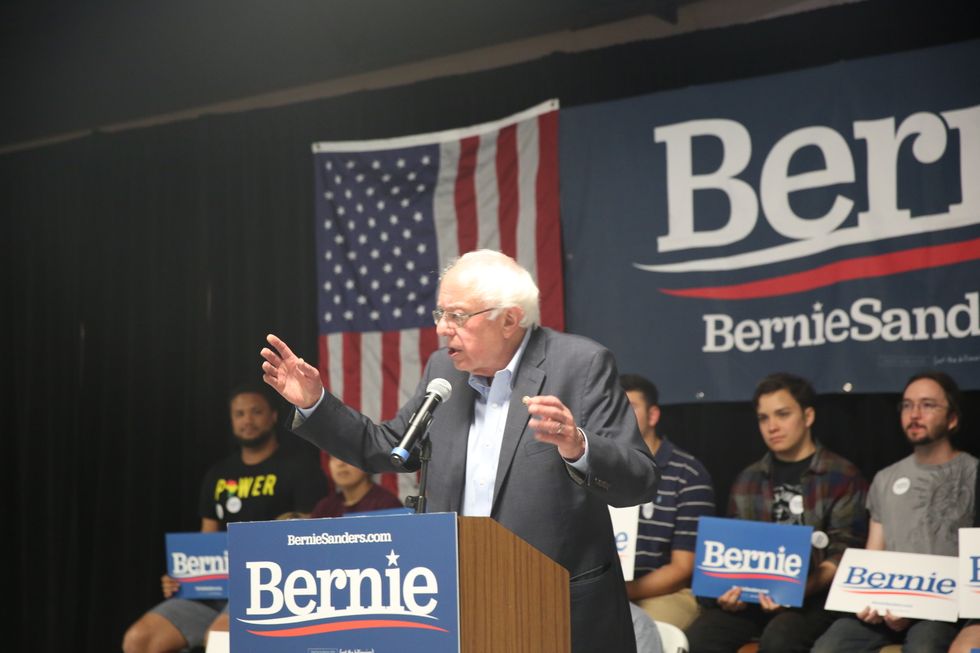
The speech ended as informally as it had begun. And Sanders' trance over the audience evaporated, replaced by that suction energy. Everyone rushed closer and closer to the man as Neil Young's "Keep on Rockin in the Free World" blared. Sanders leaned into the podium and said, "If anyone wants to form a line, we can do some selfies."
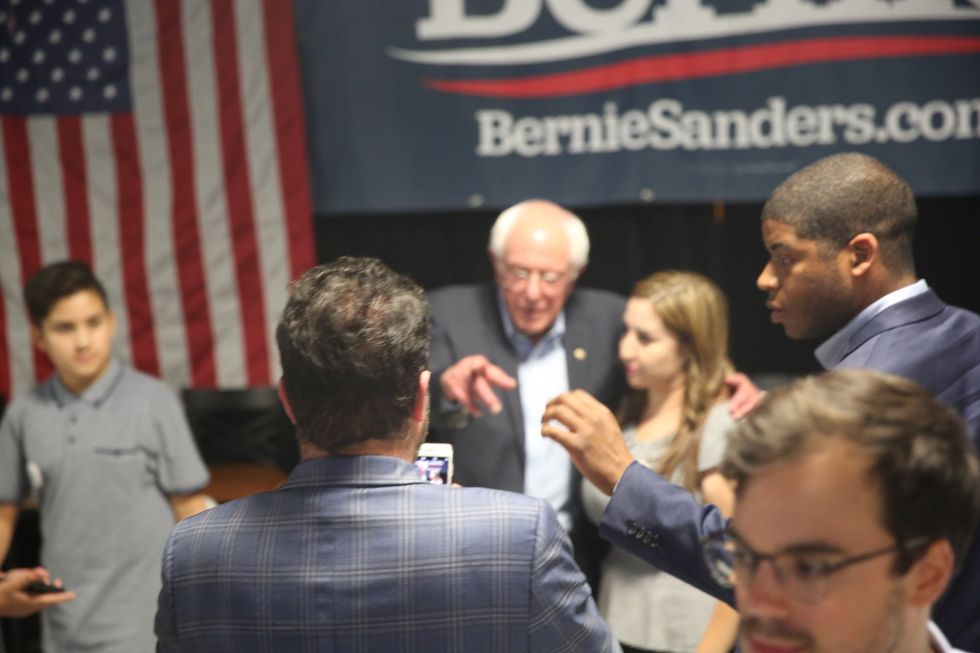
It was like meeting Jesus for some of the people.
There he was, at El Malecón. No stage lights, no makeup, no stylist behind the curtain. Just him and his ideas and his erratic hand commotion.
Then a man holding a baby leaned in for a photo. He and Sanders chatted. And, I kid you not, the whole time the baby is staring at Bernie Sanders like he's the image of God, looking right up at him, with this glow, this understanding.
Bernie, if you're reading this, I'd like to suggest that — if this election doesn't work for you — you could be the next Pope.
New installments come Mondays and Thursdays. Check out my Twitter. Email me at kryan@blazemedia.com